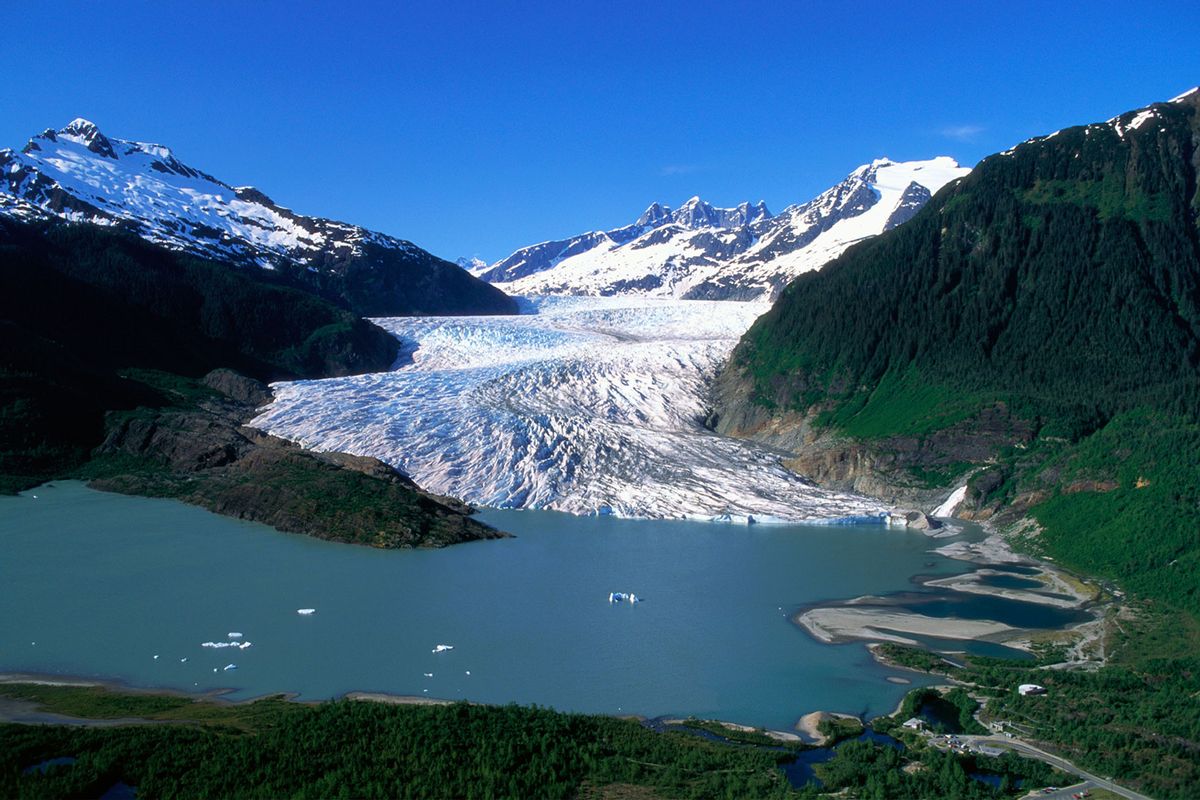Residents of Alaska's capital, Juneau, are undergoing an emergency evacuation as of Monday due to major flooding, which began due to a glacier lake outburst flood. This is a situation when a dam containing a glacial lake — in this case the Suicide Basin, a side basin on the Mendenhall Glacier — suffers a breach. The break in Suicide Basin was so significant that the subsequent flood has washed away and severely damaged homes all along the Mendenhall River.
According to FEMA, there was a less than 1 percent chance of "extreme" flooding like this occurring in that region of Alaska. "We didn't even think that this was possible," National Weather Service Juneau hydrologist Aaron Jacobs told ABC News.
Scientists have predicted since 2021 that melted glaciers will increase the risk of flooding as climate change continues to worsen. Climate change is primarily caused by humans burning fossil fuels, which releases carbon emissions into the atmosphere. These carbon emissions then act to trap heat, overheating the planet and leading to problems like melting glaciers.
If all of the glaciers and ice caps on Earth melt, sea level will rise an estimated 230 feet (70 meters), flooding out the billions of humans who live in nearby communities. The melted ice will also significantly alter weather patterns, in particular ocean current systems like the Atlantic Meridional Overturning Circulation (AMOC). If AMOC shuts down, temperatures are predicted to plummet in Europe, storms will increase in frequency and intensity, and there will be food shortages.



Shares